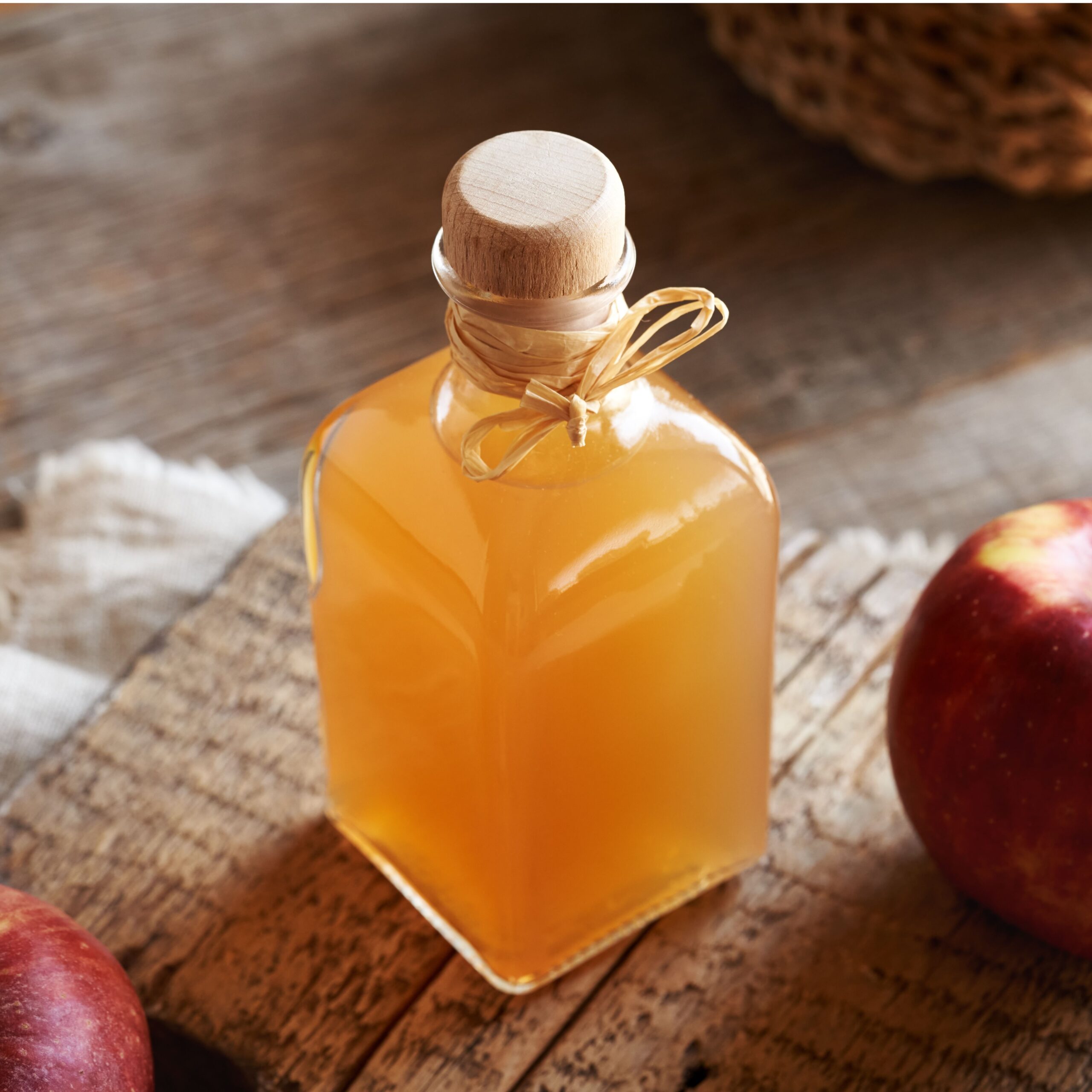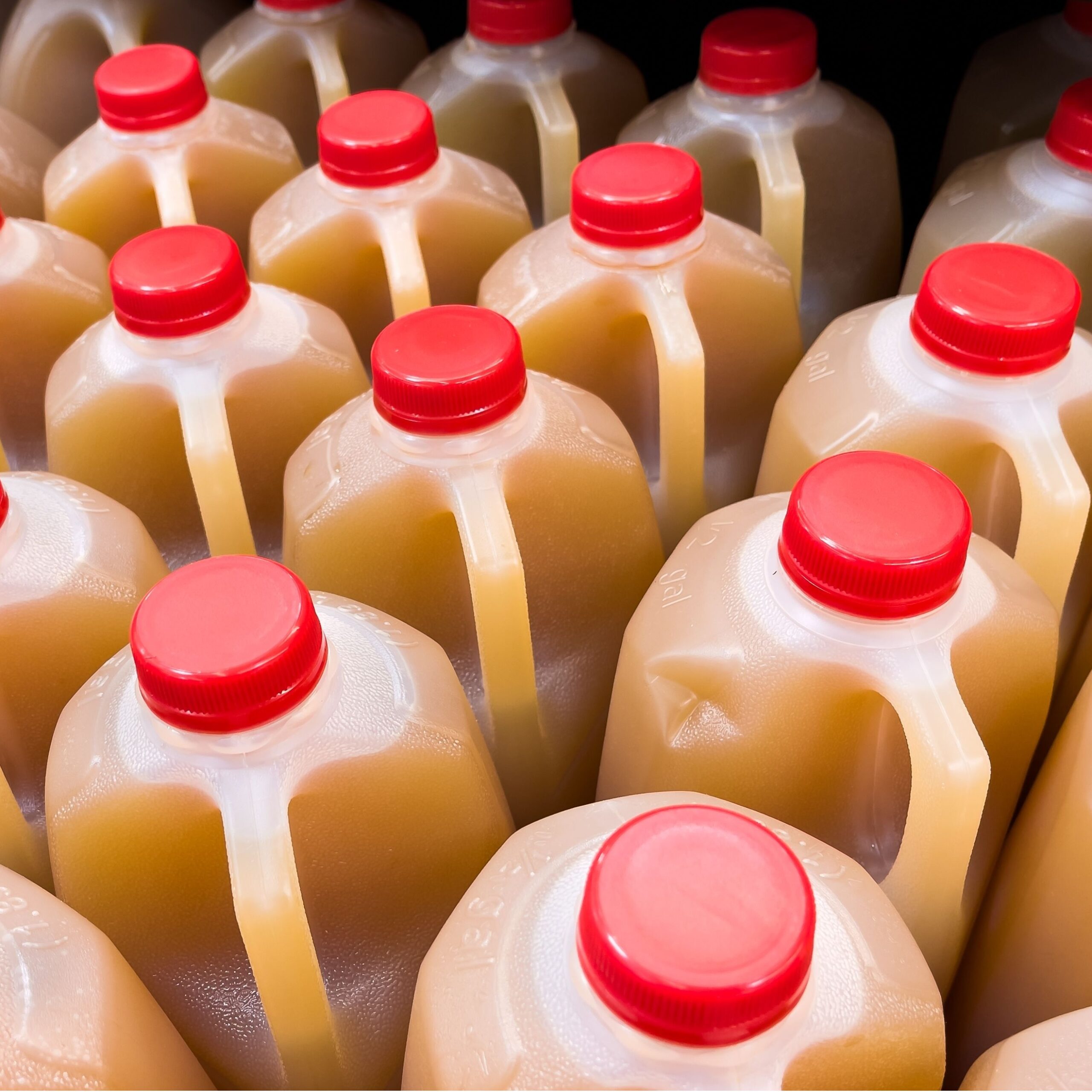When the weather dips and the leaves change color, many of us reach for a warm cup of cozy apple cider to ring in the new season. In fact, apple cider may not only be delicious; some say it has potential health benefits, from providing antioxidants to aiding digestion. However, it’s important to note that there are some hidden risks that many people aren’t aware of, especially when it comes to unpasteurized varieties—and we’re not just talking about the sugar content.
According to physician Dr. Michael Lahey, certain risks come with apple cider that hasn’t undergone proper processing. He warns that potential downsides include bacterial contamination, fermentation, mold, and more. Read on for all of his expert insight and advice.


1. Bacterial Contamination
One major risk of unpasteurized apple cider is the fact that it's especially susceptible to harmful bacteria. "Apple juice which has not been pasteurized contains several dangerous bacteria including E. coli, Salmonella, and Listeria," Dr. Lahey warns. "These pathogens are capable of causing food-borne diseases with symptoms including stomach ache, diarrhea, fever, and vomiting." Vulnerable people like children, elderly people, pregnant women, and individuals with weakened immune systems are at a particularly high risk when it comes to these illnesses.

2. Risk of Fermentation
Dr. Lahey also points out that unpasteurized cider may ferment, meaning that the juice could eventually contain alcohol. "If the cider is left without pasteurization some natural fermentation may occur and introduce unwanted alcohol into the cider," he explains. This can be particularly harmful for anyone trying to avoid alcohol. Regardless, sipping on alcoholic cider when you're expecting nothing but a sweet beverage could certainly be surprising at best and dangerous at worst.

3. Mold
Another potentially hidden danger of unpasteurized cider is the fact that it could foster the growth of mold. "At times, cider that has been made from fresh pressed juice will turn sour due to the action of wild yeasts leading to the growth of molds which are toxic when ingested," says Dr. Lahey. It shouldn't come as surprise to hear that consuming mold can be extremely dangerous. It's extremely important to carefully store cider and monitor its quality before drinking.

How to Avoid These Risks
Dr. Lahey offers some practical advice for those who want to enjoy apple cider safely. "If you are considering drinking apple cider to take advantage of its health benefits make sure that you use pasteurized apple cider, especially if you are immunocompromised," advises Dr. Lahey. He notes that while most commercially available apple ciders are pasteurized, it’s still important to read the label to ensure that no raw varieties slip through the cracks.
Even with pasteurized cider, though, properly storing it is crucial to your safety. Dr. Lahey emphasizes that "The drink should be stored in the refrigerator and should not be consumed after several days of the bottle being opened due to possible bacterial activity of fermentation."
Ultimately, while apple cider can be a delicious and refreshing beverage, it’s always important to be aware of the risks. By choosing pasteurized cider and storing it properly, you should be just fine. So next time you reach for a bottle of apple cider, make sure to check the label—and stay safe.
READ MORE: 9 Foods People Over 40 Should Start Eating For A Faster Metabolism, Nutritionists Say


























